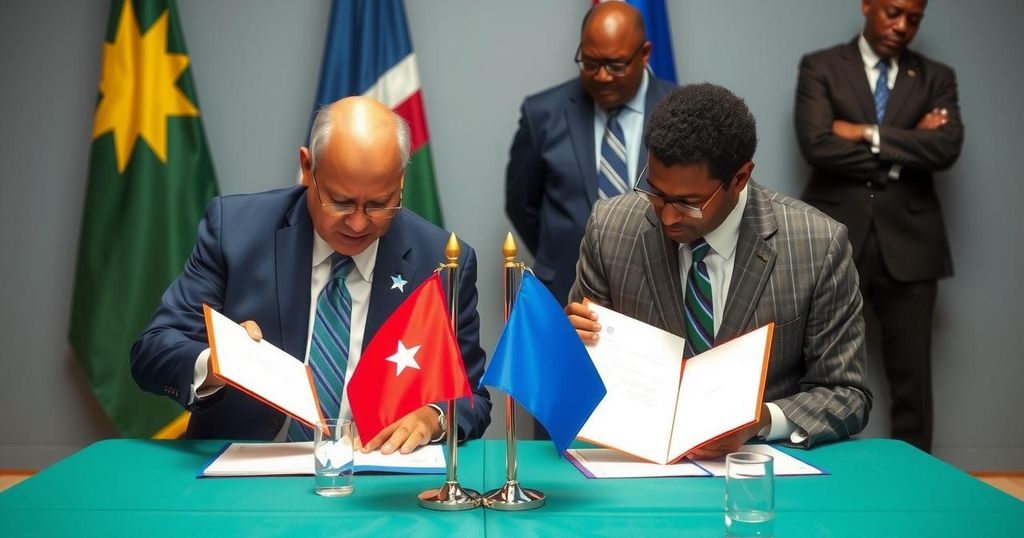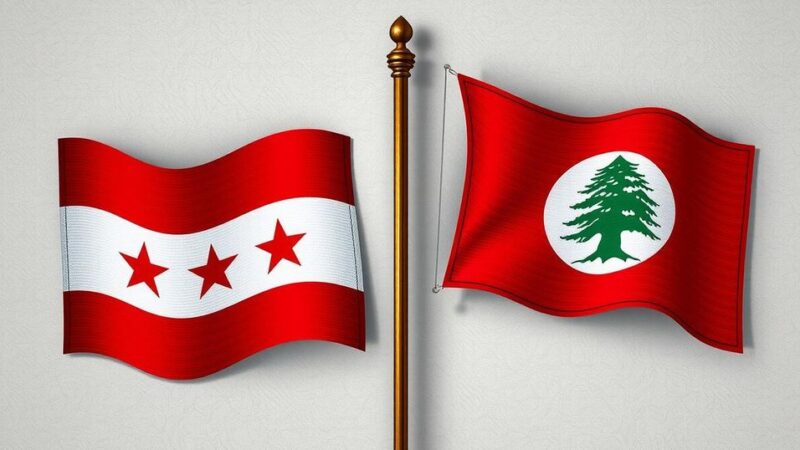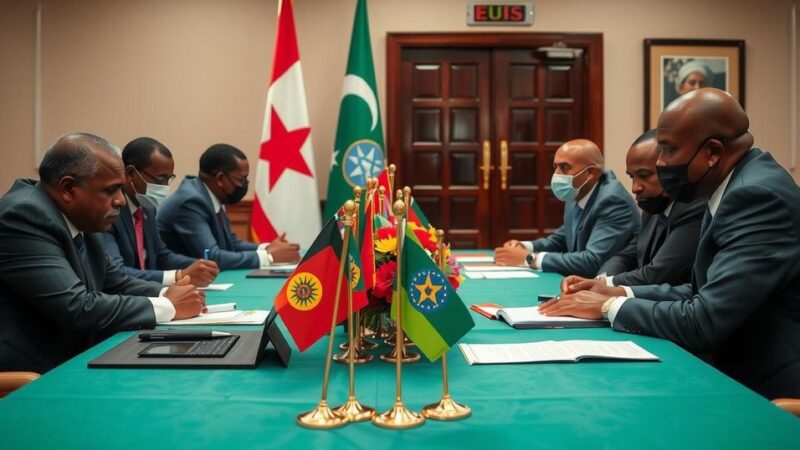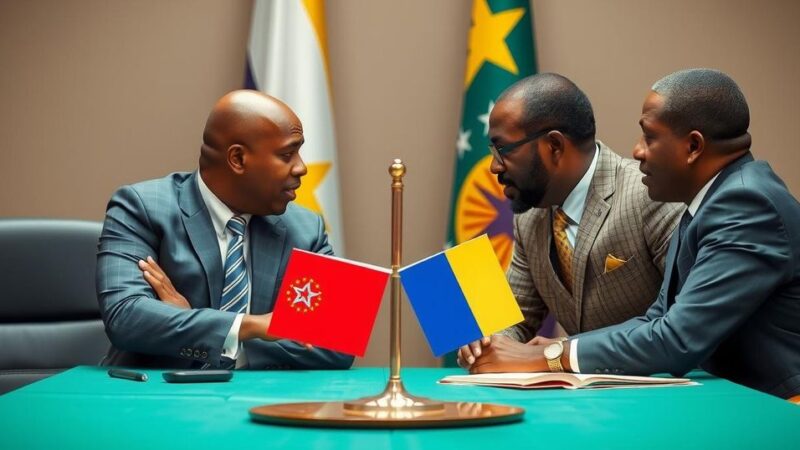Haiti and Benin have signed a five-year memorandum to enhance diplomatic ties and cooperation in areas such as security, education, and culture. The agreement was formalized during a meeting in Cotonou, and complements a visa waiver to ease travel between the nations. While troop deployment is not directly mentioned, Benin has expressed a commitment to send troops to aid Haiti in combating gang violence as part of a multinational mission, though delays are being experienced. The memorandum suggests future diplomatic realignments for Haiti as well.
On Wednesday, Haiti and Benin formalized a memorandum aimed at enhancing diplomatic relations and promoting collaboration on various international matters. The meeting, which took place in Cotonou, involved representatives from the foreign ministries of both nations under the theme of strengthening bilateral ties and fostering Pan-African and Caribbean relations. Haiti’s Foreign Minister, Jean-Victor Harvel Jean-Baptiste, underscored that the agreement is set to last for five years, with an option for renewal.
This partnership seeks to promote cooperation in essential areas including security, education, culture, diplomacy, and scientific research. The Haitian foreign ministry expressed approval of the memorandum, emphasizing that it embodies the mutual interests shared between the two countries. Alongside the memorandum, authorities from both countries also entered into a visa waiver agreement, aimed at facilitating travel between Benin and the Caribbean region.
While the memorandum does not explicitly address troop deployments, the inclusion of security collaboration may hint at a potential for military cooperation in the future. Notably, in February 2024, Benin expressed its commitment to dispatching 2,000 troops to Haiti to aid in combating gang violence as part of a multinational mission coordinated by Kenya with support from the United Nations. U.S. Ambassador to the UN, Linda Thomas-Greenfield, announced this commitment during a CARICOM meeting. However, as of January 2025, logistical hurdles and ongoing internal discussions have caused delays in troop deployment, with approximately 590 personnel from various countries currently comprising the multinational force in Haiti.
The significance of the memorandum extends to long-term diplomatic implications, particularly regarding Haiti’s future alliances post-restoration of order. The potential shift toward closer ties with African nations as opposed to Caribbean neighbors raises intriguing considerations for Haiti’s international relations strategy moving forward.
Haiti and Benin’s recent signing of a cooperation memorandum marks a significant step in diplomatic relations between the two countries, emphasizing the importance of international cooperation in addressing regional challenges. The meeting highlights the Caribbean Community’s (CARICOM) desire to strengthen ties with African nations, fostering collaboration on a multifaceted level. Furthermore, the coordination of troop deployments to Haiti amidst ongoing gang violence underscores the international community’s commitment to restoring stability and security in the region, particularly through the involvement of various nations including Benin, Kenya, and others.
The memorandum between Haiti and Benin emphasizes a commitment to strengthen relations and explore multifaceted cooperation, notably in security and education. While there is potential for military collaboration, the immediate focus appears to be on diplomatic ties. The anticipated troop deployment by Benin adds another layer to the cooperation framework, reflecting a broader trend towards international collaboration in addressing Haiti’s security dilemmas. Haiti’s evolving diplomatic stance may also pave the way for a stronger alignment with Africa in the future, influencing regional dynamics.
Original Source: www.thestkittsnevisobserver.com






